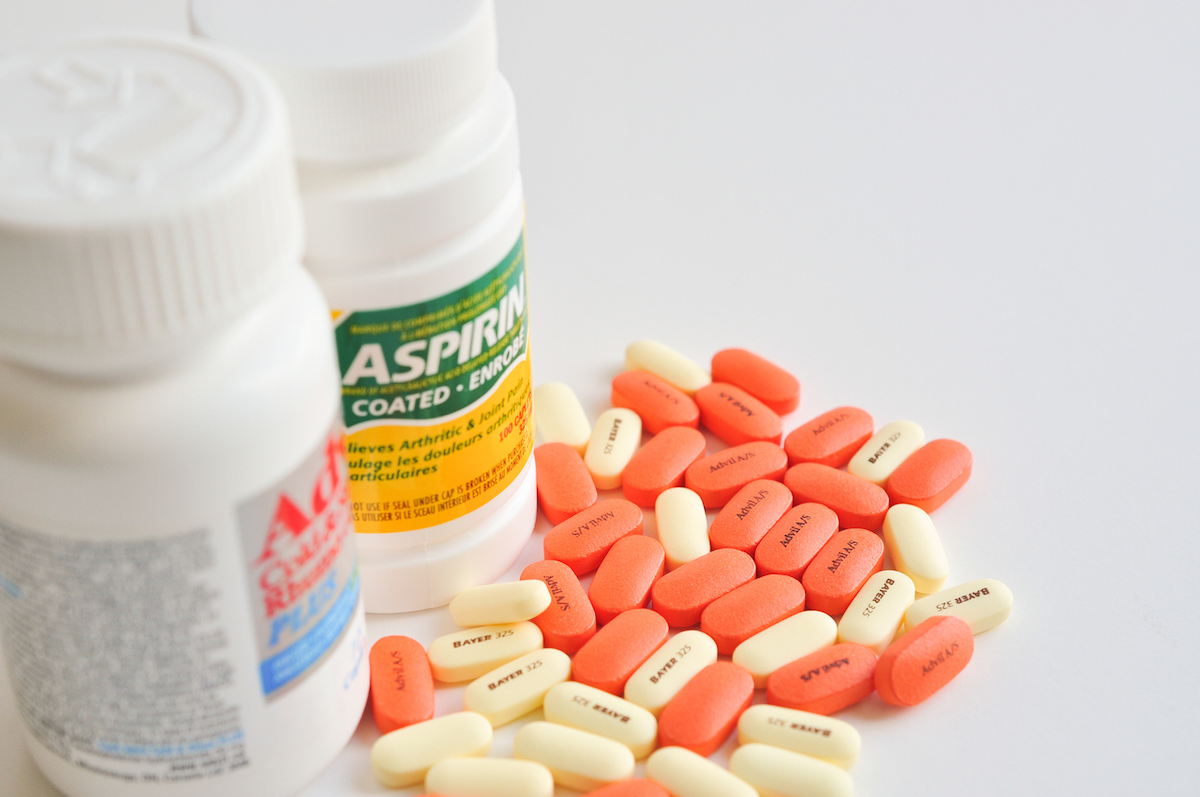During a Feb. 25 interview with CBSN as part of their A Shot of Hope: Vaccine Questions Answered special, a vaccine administrator in New Jersey wrote in to ask Fauci, “Patients often ask me whether they should be taking pain relievers either before or after the vaccine shot. I’ve heard mixed advice. What do you say?” While the White House COVID adviser didn’t specify if his answer was referring to pre- or post-vaccine, he explained, “The mixed advice is based on the fact that there’s very little data on that. I mean, if you’re going to take something that suppresses an immunological response, then obviously, you don’t want to take something like that.“ae0fcc31ae342fd3a1346ebb1f342fcb Fauci added, however, that there is one exception: “if you’re taking it for an underlying disease.” (Here’s a long list of immunosuppressant drugs for your reference.) And for a vaccine that may be offering you some immunity already, This Other Vaccine Could Be Protecting You From COVID, Study Says. In mid-February, the CDC updated its vaccine guidance to warn patients not to take ibuprofen (Motrin and Advil), acetaminophen (Tylenol), aspirin, or antihistamines before their shots. “It is not recommended you take these medicines before vaccination for the purpose of trying to prevent side effects, because it is not known how these medications may impact how well the vaccine works,” the CDC’s website reads, echoing Fauci’s comments on the lack of data. The reason why healthcare professionals have warned against taking Advil or Tylenol pre-shot is because, as the experts at the University of California, Irvine explain, taking these medications “before receiving a vaccine may reduce its ability to work and can blunt your immune response to the vaccine.” And for more COVID news delivered right to your inbox, sign up for our daily newsletter. In his interview with CBSN, Fauci added that, “Something that’s a true anti-inflammatory, such as one of the nonsteroidal anti-inflammatories, should not be given.” The most common nonsteroidal anti-inflammatory drugs (NSAIDs) are high-dose aspirin, ibuprofen (Advil, Motrin, Midol), and naproxen (Aleve, Naprosyn), Heathline reports. Again, it’s unclear if Fauci was referring to pre-vaccine, post-vaccine, or both. But Ashley Ellis, PharmD, director of clinical operations for Compwell, previously told Best Life that anti-inflammatories “block a pathway called the cyclooxygenase-2 (cox-2) enzyme”—and your body needs these enzymes to be able to produce antibodies against the virus and build immunity. And for more vaccine practices to avoid, The CDC Says Don’t Do This With the Second Dose of Your COVID Vaccine. However, if you are experiencing side effects as a result of the vaccine and want to take some medication, Fauci suggests taking a Tylenol or two. “If someone gets achey or gets a headache and it’s really bothering you, I mean, I would believe, as a physician, that I would have no trouble taking a couple of Tylenol for that,” he said. “People are gonna come back and forth and say, ‘Well, it could mute or dampen the immunological response to the vaccine itself.’ I don’t see any biological mechanisms why something like Tylenol would … do that.” Fauci explained that “if you are really having discomfort … taking something—a pill or two, like two Tylenol, every six or eight hours or so—I can’t see is going to have a major difference [on the effectiveness of your vaccine]. It might make you feel much better.” And for more on the vaccine reactions you should expect, The CDC Says These 3 Side Effects Mean Your Vaccine Is Working. While the CDC advises against ibuprofen, acetaminophen, aspirin, or antihistamines before your shot, they say “you can take these medications to relieve post-vaccination side effects if you have no other medical reasons that prevent you from taking these medications normally.” And for the latest vaccine news, The Pfizer CEO Says This Is How Often You’ll Need a COVID Vaccine.




